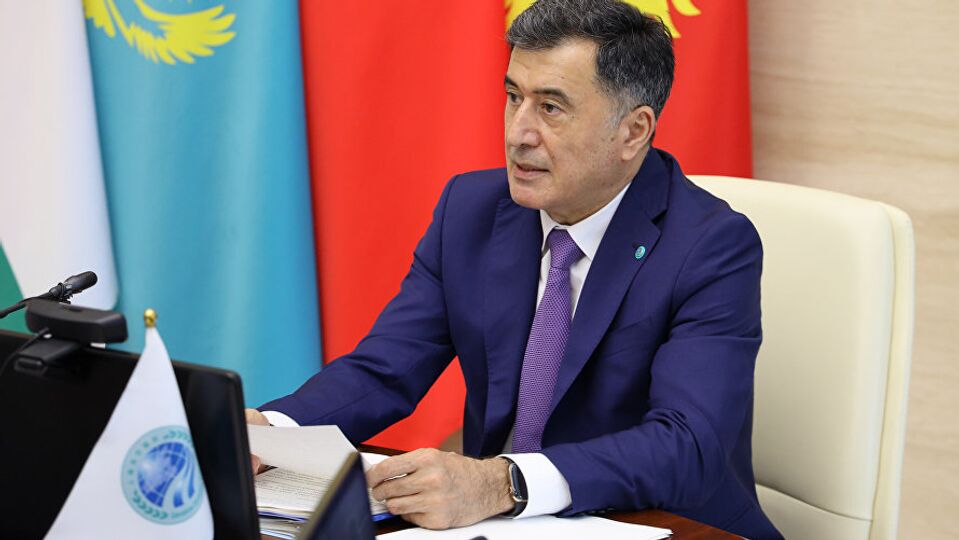On 1 June 2021, SCO Secretary-General Vladimir Norov took part in the Sixth International Conference, Russia and China: Cooperation in a New Era.
The conference was held via videoconference on 1-2 June 2021 by the Russian International Affairs Council (RIAC) and the Chinese Academy of Social Sciences (CASS) ahead of the 20th anniversary of the Treaty of Good-Neighbourliness and Friendly Cooperation between Russia and China.
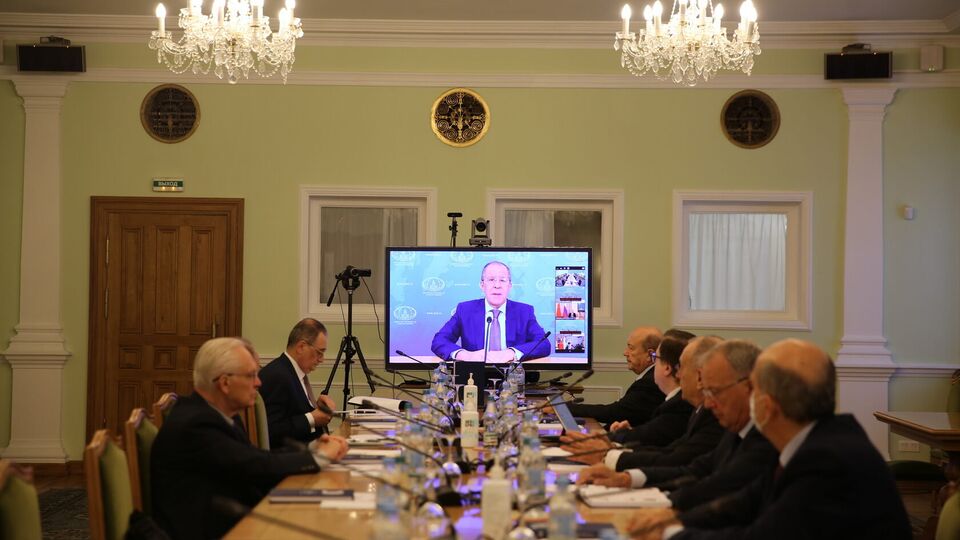
Foreign Minister of Russia Sergei Lavrov, Member of the State Council, Foreign Minister of China Wang Yi, President of RIAC and former Foreign Minister of Russia (1998-2004) Igor Ivanov and CASS President Xie Fuzhan delivered remarks at the opening ceremony.
The SCO Secretary-General, who addressed the panel discussion on Russia and China setting an example of relations between great powers of a new type, noted that the Treaty of Good-Neighbourliness and Friendly Cooperation focused on strengthening stability and establishing an atmosphere of mutual understanding in the regions adjacent to Russia and China. He added that this approach was implemented most convincingly during the establishment of the Shanghai Cooperation Organisation, which will mark its 20th anniversary on 15 June 2021.
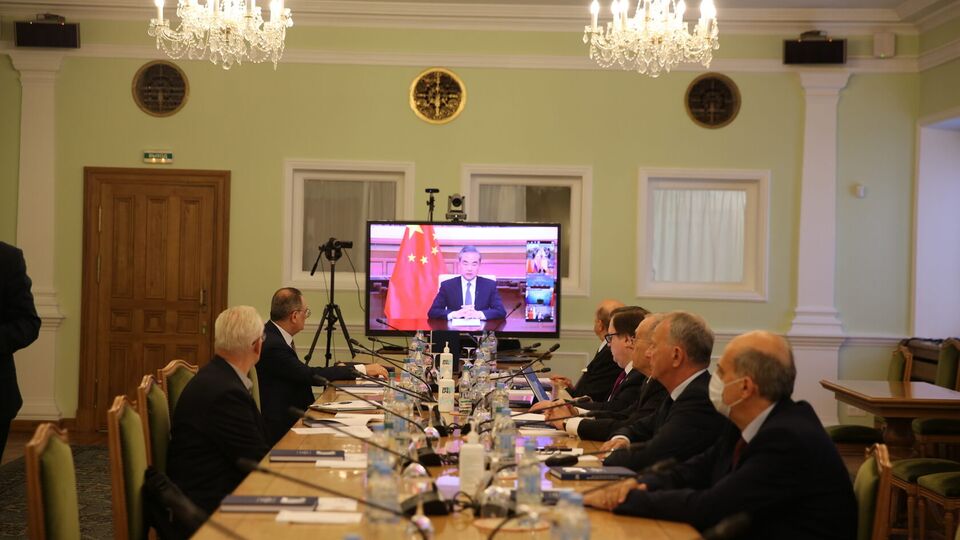
"Having to operate in a new international political landscape following the collapse of the bipolar system, Russia and China set an example of responsible leadership, which rejects the primacy of crude force and relies instead on the potential of good-neighbourliness and mutual trust among different cultures and civilisations," Vladimir Norov pointed out.
"The two countries' ability to offer a unifying agenda to the newly independent states in Central Asia, the agenda that is at the core of the SCO, provided an impetus to the development of a fundamentally new security system and promotion of collective development in the region," he said.
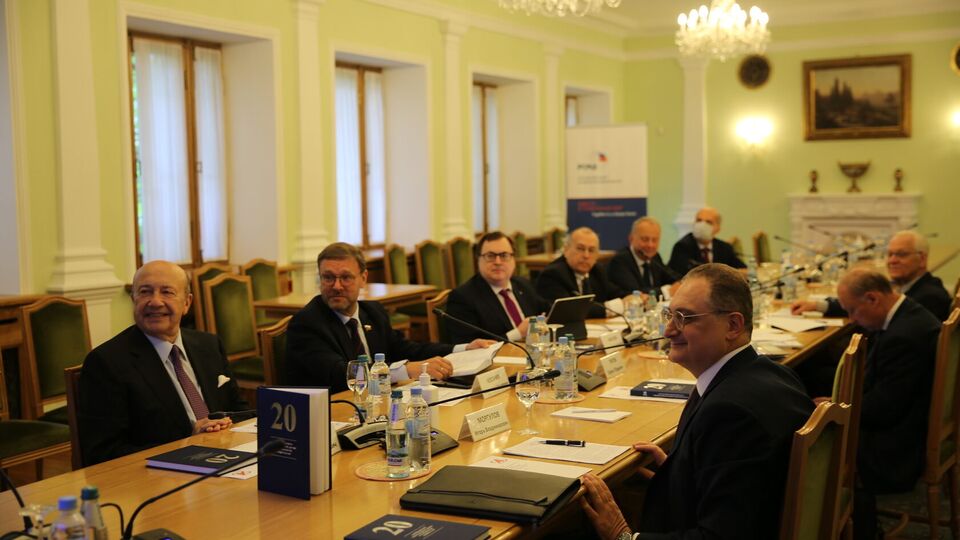
The SCO Secretary-General noted that the SCO's model of inclusive multilateralism was becoming a major pillar of the UN-centric world order. The promotion of the SCO model of relations based on mutual respect on the global scale could stop a dangerous return to ideology-driven confrontation and accelerate the joint movement towards a fairer and more representative world order.
The focus was made on the implementation of practical measures to align the development of the Eurasian Economic Union with China's Belt and Road Initiative, including in the context of Russia's proposal to create the Greater Eurasian Partnership.
Vladimir Norov pointed out that a competent synchronisation of these two co-directional projects, combined with coordinated project financing mechanisms, were crucial for developing a common system of transit and transport corridors, boosting infrastructure development, enhancing the investment attractiveness of the SCO member states and hence facilitating the attainment of the 2030 UN Sustainable Development Goals.
He highlighted the joint Russian-Chinese contribution to strengthening the SCO's capability against new security challenges and threats and to promoting this experience on the UN platforms.
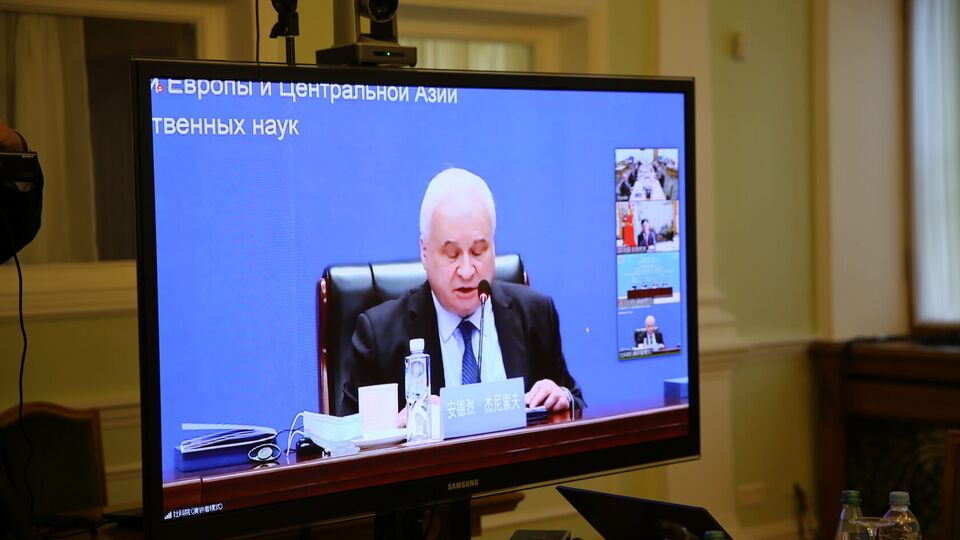
The SCO Secretary-General also spoke about the important stabilising role of the SCO, which has been maintaining peace and security in the region despite the drawn-out armed conflicts in the vicinity of the member states' borders. He mentioned the current efforts of Russia, China and their SCO partners to promote a peaceful settlement in Afghanistan.
Other discussion participants on the first day of the conference included First Deputy Speaker of the State Duma of the Federal Assembly of the Russian Federation Ivan Melnikov, Deputy Speaker of the RF Federal Assembly Konstantin Kosachev, Chinese Ambassador Extraordinary and Plenipotentiary to Russia Zhang Hanhui, Russian Ambassador Extraordinary and Plenipotentiary to China Andrei Denisov, Special Representative of the Chinese Government on Eurasian Affairs Li Hui, Deputy Foreign Minister of Russia Igor Morgulov, Presidential Commissioner for Entrepreneurs' Rights and Chair of the Russian-Chinese Committee for Friendship, Peace and Development Boris Titov, Chair of the Chinese People's Association for Friendship with Foreign Countries Lin Songtian, Acting Director of the Russian Academy of Sciences' Institute of Far Eastern Studies Alexei Maslov, former Deputy Head of the International Liaison Department of the Central Committee of the Communist Party of China Zhou Li, CASS Presidium Member and Director of the CASS Institute of Chinese Borderland Studies Xing Guangcheng, as well as high-ranking former diplomats and representatives of other leading research institutions of Russia and China.
The agenda of the second day included plenary meetings on the Russian-Chinese cooperation priorities in the post-pandemic world (trade, new technologies and finance) and on cooperation between their think tanks.
